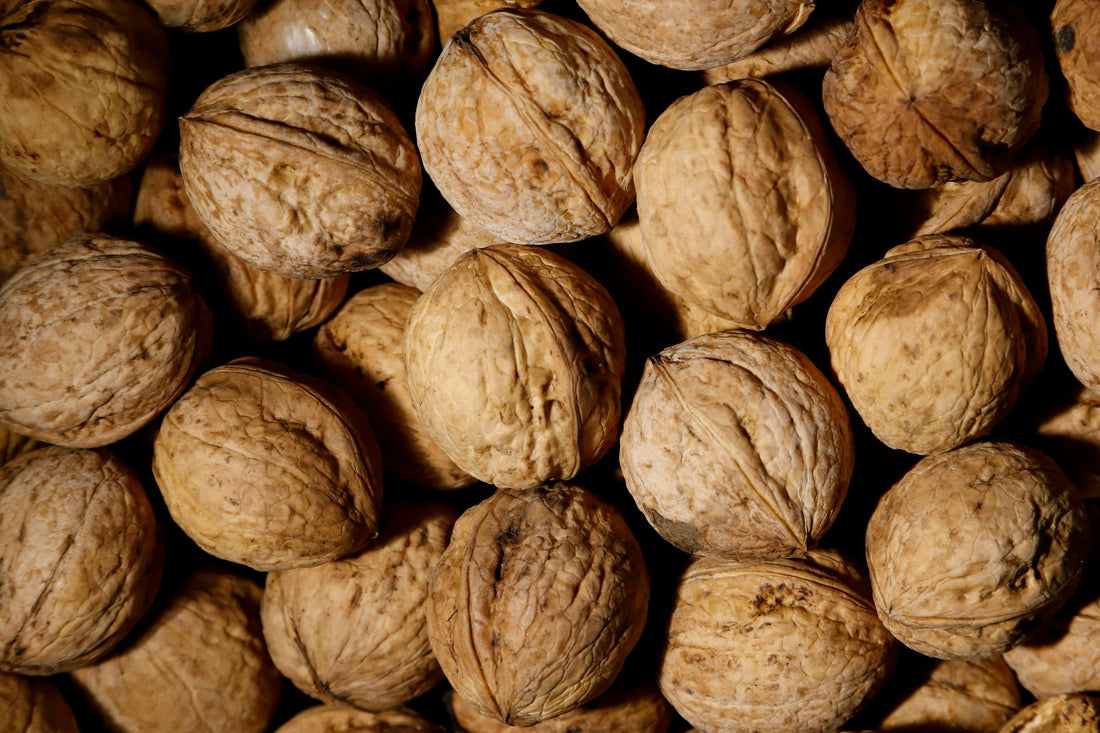
Role of Walnuts In Gut And Heart Health
Share
Cardiovascular disease (CVD) remains the leading cause of death worldwide, with diet playing a crucial role in its prevention. Recent research suggests that gut health may also be a key factor in cardiovascular wellness. The gut microbiota—a complex community of bacteria in the digestive tract—affects metabolism, inflammation, and nutrient absorption, all of which impact heart health. One food that has gained attention for its potential to benefit both gut bacteria and cardiovascular function is walnuts.
How Walnuts Support Gut and Heart Health
Walnuts are rich in omega-3 fatty acids, fiber, and bioactive compounds, making them a valuable addition to a heart-healthy diet. Unlike many other nuts, walnuts contain alpha-linolenic acid (ALA), a plant-based omega-3 fatty acid that has been linked to lower inflammation and improved lipid profiles. Additionally, walnuts provide polyphenols, tannins, and fiber, which interact with gut microbiota in ways that may further enhance cardiovascular health.
One study found that walnut consumption led to positive changes in gut bacteria, increasing the abundance of beneficial bacteria like Roseburia, Eubacterium eligens, and Butyricicoccus, which produce short-chain fatty acids (SCFAs). SCFAs help maintain gut lining integrity, reduce inflammation, and support metabolic health, all of which contribute to heart disease prevention.
The Gut-Heart Connection
The relationship between the gut microbiota and cardiovascular health is complex but increasingly well-documented. Certain gut bacteria influence cholesterol metabolism, blood pressure regulation, and systemic inflammation—key factors in CVD risk.
One study found that replacing saturated fats with walnuts led to favorable shifts in gut bacteria, which correlated with improvements in blood pressure and cholesterol levels. Specifically, higher levels of Lachnospiraceae bacteria were linked to lower total cholesterol, non-HDL cholesterol, and mean arterial pressure, suggesting that walnuts may help shape the gut microbiota in a way that reduces CVD risk.
Bioactive Compounds and Microbiome Benefits
Beyond fiber and healthy fats, walnuts contain ellagitannins, a type of polyphenol metabolized by gut bacteria into urolithins. These compounds have been associated with anti-inflammatory and cardioprotective properties. One study found that after walnut consumption, there was an increase in Gordonibacter, a gut bacterium involved in ellagitannin metabolism, suggesting that walnuts help create a gut environment that maximizes the absorption of beneficial bioactive compounds.
Additionally, gut bacteria play a role in bile acid metabolism, which affects cholesterol levels. Some research suggests that diets high in saturated fat promote the expansion of bacteria that convert bile salts into secondary bile acids, which can contribute to gut inflammation and metabolic disturbances. Walnuts, with their healthy fat profile, may help balance this process and support cholesterol regulation.
Can Gut Health Influence Weight and Metabolism?
Obesity and metabolic syndrome are major risk factors for CVD, and emerging research suggests that gut bacteria may play a role in weight regulation. While this connection is still being explored, some studies indicate that certain gut bacteria may contribute to either weight gain or weight loss.
One study found that consuming walnuts increased Lachnospiraceae, a bacterial family associated with better metabolic health. Interestingly, this bacterium was also found to suppress the growth of Lachnoclostridium, which has been linked to higher BMI and obesity. While more research is needed, these findings suggest that walnuts may promote a gut microbiome that supports a healthier metabolism.
The Bigger Picture: Diet, Gut Health, and CVD Prevention
The connection between diet, gut microbiota, and cardiovascular health is a rapidly evolving area of research. While we have long understood the importance of healthy fats, fiber, and antioxidants in heart disease prevention, the role of gut bacteria is now coming into focus.
Walnuts offer a unique combination of nutrients and bioactive compounds that not only support heart health directly but may also enhance gut microbiota in ways that promote long-term cardiovascular wellness.
Final Thoughts
Incorporating walnuts into a heart-healthy diet may offer benefits beyond their nutrient profile. By supporting beneficial gut bacteria, reducing harmful metabolic byproducts, and contributing to a healthier microbiome, walnuts could be an essential food for cardiovascular disease prevention.
As research continues to uncover the connections between gut health and heart disease, it is becoming clear that a diverse, fiber-rich, and plant-based diet can influence not just metabolic markers but also the microbial ecosystem within us. For those looking to improve both gut health and heart health, walnuts may be one of the simplest and most effective additions to a daily diet.
